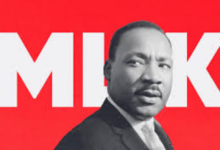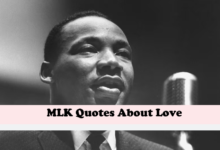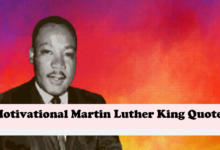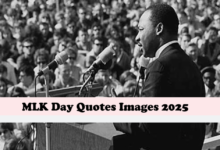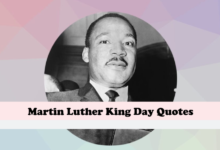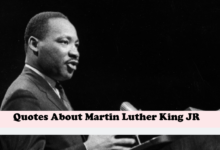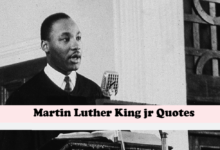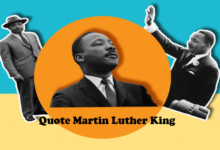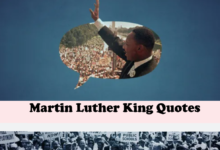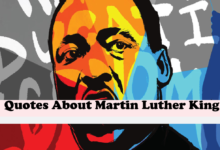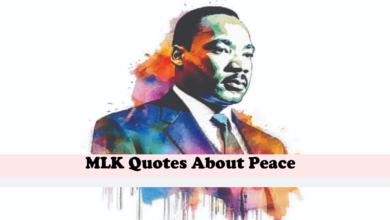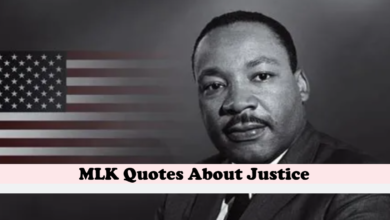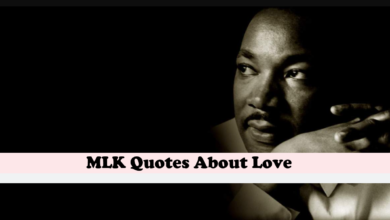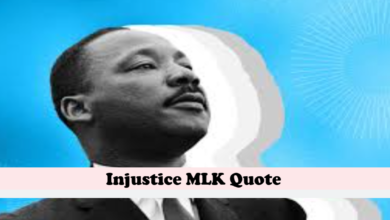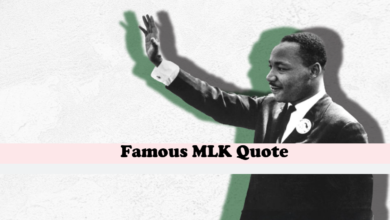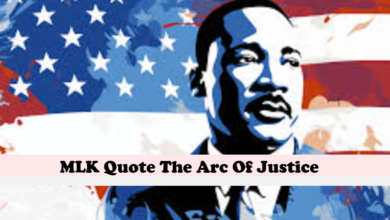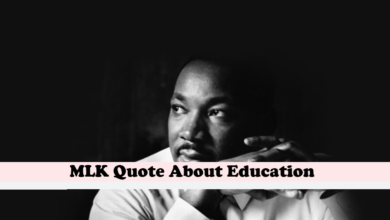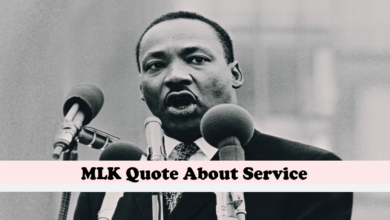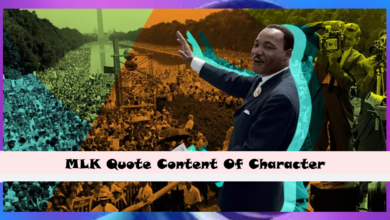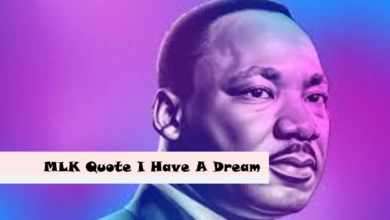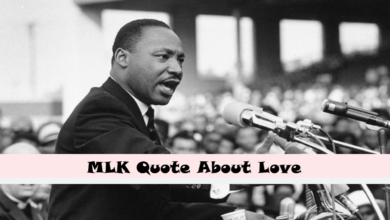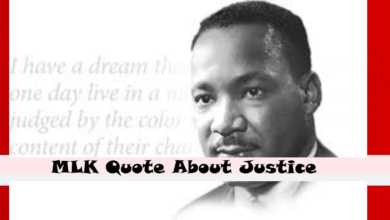MLK Quote Free at Last
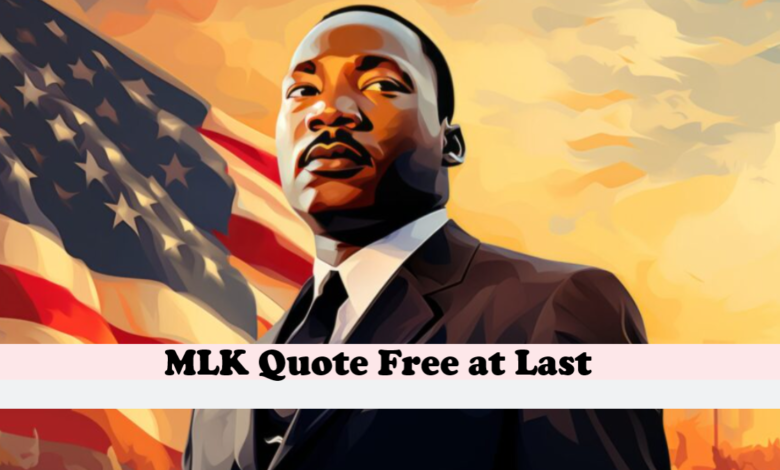
Martin Luther King Jr.’s powerful words have echoed throughout history, inspiring millions in the fight for racial equality, justice, and human dignity. Among the most memorable and impactful quotes he ever delivered was his final proclamation: “Free at last, free at last, thank God Almighty we are free at last!” These words were spoken during his speech at the March on Washington for Jobs and Freedom in 1963, and they encapsulate the culmination of years of struggle, sacrifice, and unwavering hope for a better future.
But King’s proclamation wasn’t just a statement of personal relief—it was a resounding declaration of the collective victory of the Black community and a powerful expression of the goal for which he and so many others had fought: the end of racial segregation, oppression, and inequality. In this blog post, we’ll explore the significance of King’s “Free at last” quote, its context, and how it continues to inspire the ongoing fight for justice and freedom today.
MLK Quote Free at Last
The March on Washington for Jobs and Freedom, held on August 28, 1963, was one of the largest and most pivotal events in the American Civil Rights Movement. Over 250,000 people, from diverse backgrounds and regions, gathered in the nation’s capital to demand jobs, equality, and civil rights protections for Black Americans. The march took place in the shadow of the Lincoln Memorial, a site rich in symbolism for freedom and equality, and became the backdrop for one of King’s most famous speeches.
During the event, King gave his “I Have a Dream” speech, where he painted a vision of a future where racial equality prevailed, where people of all races and backgrounds could live harmoniously and without fear of discrimination. His words about freedom, justice, and hope for the future were a call for action and unity.
“Darkness cannot drive out darkness: only light can do that. Hate cannot drive out hate: only love can do that.”
― Martin Luther King Jr.,
“I have decided to stick to love…Hate is too great a burden to bear.”
― Martin Luther King Jr.
“I have decided to stick to love…Hate is too great a burden to bear.”
― Martin Luther King Jr.
“Our lives begin to end the day we become silent about things that matter.”
― Martin Luther King Jr.
“In the end, we will remember not the words of our enemies, but the silence of our friends.”
― Martin Luther King Jr.
Faith is taking the first step even when you can’t see the whole staircase.”
― Martin Luther King Jr.
“If you can’t fly then run, if you can’t run then walk, if you can’t walk then crawl, but whatever you do you have to keep moving forward.”
― Martin Luther King Jr.
“But I know, somehow, that only when it is dark enough can you see the stars.”
― Martin Luther King, Jr.
“Let no man pull you so low as to hate him.”
― Martin Luther King Jr., A Knock at Midnight: Inspiration from the Great Sermons of Reverend Martin Luther King, Jr.
“There comes a time when one must take a position that is neither safe, nor politic, nor popular, but he must take it because conscience tells him it is right.”
― Martin Luther King Jr., A Testament of Hope: The Essential Writings and Speeches
“Nothing in the world is more dangerous than sincere ignorance and conscientious stupidity.”
― Martin Luther King Jr.
“The ultimate measure of a man is not where he stands in moments of comfort and convenience, but where he stands at times of challenge and controversy.”
― Martin Luther King Jr.
“Intelligence plus character-that is the goal of true education.”
― Martin Luther King Jr.
“Everybody can be great…because anybody can serve. You don’t have to have a college degree to serve. You don’t have to make your subject and verb agree to serve. You only need a heart full of grace. A soul generated by love.”
― Martin Luther King Jr.
“No one really knows why they are alive until they know what they’d die for.”
― Martin Luther King Jr.
“We must come to see that the end we seek is a society at peace with itself, a society that can live with its conscience.”
― Martin Luther King Jr.
“Injustice anywhere is a threat to justice everywhere.”
― Martin Luther King Jr.
“A man who won’t die for something is not fit to live.”
― Martin Luther King Jr., The Autobiography of Martin Luther King, Jr.
“Forgiveness is not an occasional act, it is a constant attitude.”
― Martin Luther King Jr.
“If a man is called to be a street sweeper, he should sweep streets even as a Michaelangelo painted, or Beethoven composed music or Shakespeare wrote poetry. He should sweep streets so well that all the hosts of heaven and earth will pause to say, ‘Here lived a great street sweeper who did his job well.”
― Martin Luther King Jr.
“We must accept finite disappointment, but never lose infinite hope.”
― Martin Luther King Jr.
“Those who are not looking for happiness are the most likely to find it, because those who are searching forget that the surest way to be happy is to seek happiness for others.”
― Martin Luther King Jr.
“I have a dream that my four little children will one day live in a nation where they will not be judged by the color of their skin but by the content of their character.”
― Martin Luther King Jr.
“Never forget that everything Hitler did in Germany was legal.”
― Martin Luther King Jr.
“We must live together as brothers or perish together as fools.”
― Martin Luther King Jr.
“Science investigates; religion interprets. Science gives man knowledge, which is power; religion gives man wisdom, which is control. Science deals mainly with facts; religion deals mainly with values. The two are not rivals.”
― Martin Luther King, Jr
It was at the conclusion of the speech, after delivering his powerful dream of equality, that King uttered the now-iconic phrase, “Free at last, free at last, thank God Almighty we are free at last!” These words were not just an expression of personal triumph but also a collective expression of liberation for Black Americans who had long suffered under the weight of segregation, disenfranchisement, and violence.
The phrase “free at last” encapsulated the deep yearning for freedom and justice that had driven generations of Black Americans to fight against systemic oppression. It was a declaration that, despite the long history of racial violence, inequality, and exclusion, the dream of freedom was still alive.
The Significance of “Free at Last”
King’s “Free at last” was not a claim of immediate victory, but rather an expression of the hope for the eventual triumph of justice. At the time, Black Americans were still being subjected to the brutal realities of segregation and discrimination, especially in the South. Although King’s movement had made significant strides, such as challenging Jim Crow laws and promoting nonviolent protest, the path to full racial equality was still a long one.
The “Free at last” quote encapsulated the dual nature of King’s vision: it was both a statement of hope and a call to action. King was speaking to a people who had endured centuries of oppression, but he was also reminding them that the struggle was not over. While the moment of liberation had not yet come in full, King’s words served as a promise that the fight for justice would eventually bring about freedom for all.
Additionally, the quote’s spiritual tone reflected King’s deep-rooted faith and belief that ultimate justice would prevail through divine intervention. King was a Baptist minister, and throughout his life, he often spoke of the connection between his faith and his activism. He viewed the struggle for civil rights as not just a political or social movement, but as a moral and spiritual fight that was in alignment with God’s will.
For King, the fight for justice was a reflection of his faith in the possibility of a better world. His declaration of being “free at last” was not just the freedom of Black Americans from the chains of racism—it was a declaration of humanity’s ultimate freedom from hate, violence, and injustice.
The Long Road to Freedom: Why “Free at Last” Still Matters
While much has changed since King’s “Free at last” speech, particularly with the passage of landmark legislation like the Civil Rights Act of 1964 and the Voting Rights Act of 1965, the fight for equality is far from over. King’s declaration was a call for liberation, not just for Black Americans, but for all oppressed groups, and it remains relevant today as a reminder that true freedom requires constant vigilance and effort.
The concept of being “free” is not a static, one-time achievement—it is an ongoing process. In King’s time, freedom meant the end of legalized segregation and the ability for Black Americans to vote and participate fully in public life. Today, freedom extends to issues like economic equality, access to education, criminal justice reform, and racial equity in policing.
The “free at last” quote is still invoked in moments of social progress, yet it also underscores the ongoing challenges faced by marginalized communities. In recent years, movements like Black Lives Matter have brought attention to the fact that racial injustice continues to persist, particularly in law enforcement practices, the criminal justice system, and economic disparities. The fight for freedom, equality, and justice remains an urgent cause.
King’s message of hope and action remains a powerful reminder that freedom cannot be taken for granted. It requires continuous struggle, activism, and dedication. As King himself said, “We must accept finite disappointment, but never lose infinite hope.” The “Free at last” quote continues to inspire and remind us that the pursuit of justice is not a destination, but an ongoing journey.
The Legacy of “Free at Last” in Modern Activism
King’s call for freedom lives on through the work of countless activists and movements that have followed in his footsteps. In the face of systemic racism, poverty, and inequality, people continue to rise up and demand justice. Whether through protests, community organizing, or the pursuit of policy changes, King’s vision of freedom resonates strongly in today’s fight for social change.
The “Free at last” quote has been adopted by modern-day activists who continue to push for the dismantling of systems of oppression. For instance, the Black Lives Matter movement draws inspiration from King’s belief in the moral necessity of justice, highlighting the need for police reform, accountability, and the eradication of racial violence. The fight for economic justice, climate justice, and immigrant rights all draw upon the principles of equality and human dignity that King championed.
King’s words continue to serve as a source of strength for those fighting for a better world. His declaration of freedom reminds us that, even in the face of setbacks and challenges, the pursuit of justice is worth every struggle.
Conclusion: A Vision of Hope and Freedom
When Martin Luther King Jr. proclaimed, “Free at last, free at last, thank God Almighty we are free at last!” he was not just expressing the culmination of a long struggle for civil rights—he was providing a vision of hope that continues to inspire generations of activists around the world. His words captured the deep yearning for freedom and justice, and they reminded us that no matter the obstacles we face, true liberation is always worth striving for.
King’s “Free at last” declaration lives on as a testament to the power of hope, faith, and perseverance in the face of injustice. The path to freedom may be long, but it is through the continued efforts of each generation that we come closer to realizing the vision of a world where true justice and equality reign for all people.
